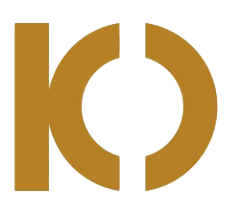The European Commission has just opened a new funding round under the Asylum, Migration and Integration Fund (AMIF), offering €34 million to support impactful projects that strengthen migrant integration across Europe. But what exactly is this initiative about, and who can benefit?
Let’s unpack this strategic move by the EU—and why it matters now more than ever.
Why This Funding Matters in 2025
Migration remains one of the EU’s most pressing social issues, and integrating newcomers effectively is essential for long-term cohesion. This fresh €34 million investment reflects that urgency and focuses on five critical areas that are often neglected or underfunded.
The funding isn’t just symbolic—it’s designed to deliver tangible support where it’s needed most, closing the gap between vulnerable migrant populations and the systems they rely on to build stable lives.
What Areas Will the Funding Cover?
Here’s where things get specific. The call for proposals targets five essential areas of integration:
1. Access to Healthcare
Migrants often face serious challenges when trying to access healthcare—from language barriers to a lack of insurance or legal documentation. This funding aims to create programs that improve accessibility and awareness, ensuring that no one is left behind when it comes to physical or mental health.
2. Labour Market Integration for Migrant Women
Migrant women are often doubly marginalized—by gender and by status. The EU wants to back projects that help them enter and thrive in the labor market. Whether it’s through job training, networking, or mentorship, this area will empower women to gain independence and contribute economically.
3. Digital Literacy Programs
In today’s world, digital skills are not optional—they’re survival tools. Migrants who lack access or knowledge risk being shut out of education, jobs, and even basic communication. These funds will support initiatives that close the digital divide and teach newcomers the tools they need to navigate modern life.
4. Education for Refugees
From early schooling to adult learning, education is a cornerstone of integration. The EU recognizes that refugee children and adults need tailored educational support—especially when they’ve missed years of school or face unique language barriers.
5. Child Protection
Migrant children, especially unaccompanied minors, are among the most vulnerable. This funding stream aims to enhance child protection systems, safeguard rights, and provide safe environments where these children can recover and grow.
Who Can Apply?
This isn’t a closed-door program. The EU is actively inviting applications from:
- Public authorities (local, regional, or national)
- Non-governmental organizations (NGOs)
- Migrant-led or migrant-focused organizations
Collaborative efforts are encouraged. Multi-country partnerships or cross-sector collaborations may even have an advantage during selection. The idea is to build on existing strengths while innovating for greater impact.
Table: Summary of Focus Areas and Potential Impact
| Focus Area | Target Group | Project Goal |
|---|---|---|
| Healthcare Access | All migrants | Improve availability and accessibility |
| Women in the Labor Market | Migrant women | Support job entry and career development |
| Digital Literacy | All migrants | Teach essential digital skills |
| Education for Refugees | Refugees (children & adults) | Tailored learning and school reintegration |
| Child Protection | Unaccompanied minors | Safety, rights protection, and care frameworks |

